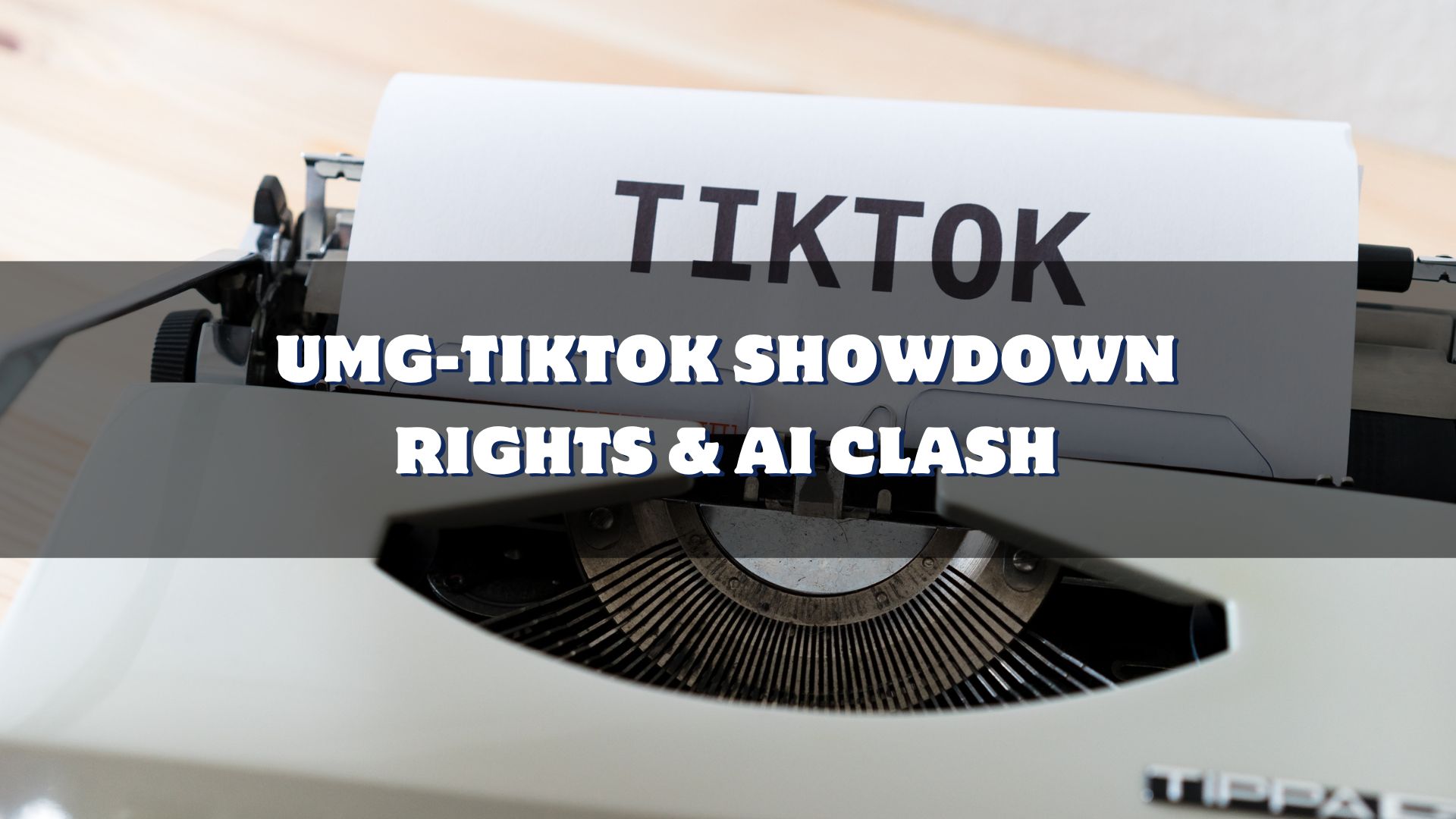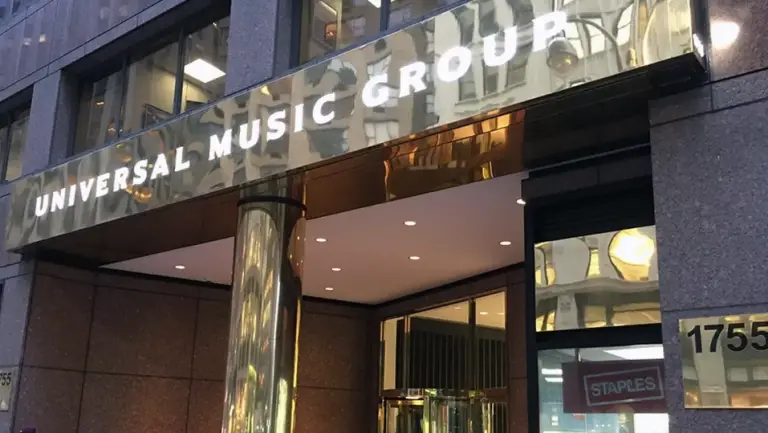UMG-TikTok Showdown: Rights & AI Clash

In the ever-evolving landscape of digital entertainment, a new saga unfolds as Universal Music Group (UMG) and TikTok find themselves at the heart of a groundbreaking dispute. This confrontation not only highlights the complexities of music rights in the age of short-form video platforms but also brings to the forefront the contentious role of AI-generated music. As you navigate through this narrative, you’ll uncover the intricacies of this clash and its broader implications on artists, platforms, and the music industry at large.
The UMG-TikTok dispute sheds light on the evolving challenges at the intersection of music rights and digital innovation. With UMG’s concerns ranging from inadequate compensation to the implications of AI-generated music, and TikTok’s defense highlighting its role in artist promotion, this clash underscores the need for a balanced approach to copyright, creativity, and technology.
Table of Contents
How Did the UMG-TikTok Dispute Arise?
The genesis of the UMG-TikTok dispute can be traced back to the intricate dance of negotiation over a new licensing agreement. Universal Music Group, a titan in the global music industry, sought to renew its contract with TikTok, the social media juggernaut known for its short-form video content that heavily relies on music for user engagement and creativity. As the discussions unfolded, a chasm emerged, rooted in fundamentally divergent views on the value of music in the digital realm. UMG, representing a roster of world-renowned artists, argued for fair compensation reflective of its catalog’s contribution to TikTok’s success. However, TikTok’s counteroffers, perceived by UMG as undervaluing their music, led to a deadlock. This impasse, marked by UMG’s decision to pull its music from TikTok, signals a broader industry confrontation over rights, royalties, and the role of music in the burgeoning economy of social media platforms.
What Are UMG's Main Concerns with TikTok?
Inadequate Compensation
UMG’s primary grievance with TikTok revolves around what it perceives as inadequate financial compensation for its music catalog. Despite TikTok’s vast user base and significant advertising revenue, UMG contends that the platform’s contribution to its overall income is minuscule. This disparity, UMG argues, fails to recognize the intrinsic value and pivotal role of its music in driving user engagement and content creation on TikTok, thereby undermining the economic foundation of the music industry.
AI-Generated Music
Another significant concern for UMG is the rise of AI-generated music on TikTok. UMG fears that the proliferation of AI-created tracks could dilute the royalty pool, diminishing the earnings of human artists. This shift towards algorithmically generated content raises profound questions about the future of music creation, copyright, and the essence of artistic authenticity, challenging the traditional paradigms of musical creativity and compensation.
Copyright and Safety Issues
UMG’s apprehensions extend to TikTok’s handling of copyright infringements and the platform’s commitment to user safety. The music giant criticizes TikTok’s processes for addressing copyright violations as overly cumbersome and inefficient, potentially facilitating unauthorized use of its artists’ work. Furthermore, UMG expresses concerns about TikTok’s efforts to combat hate speech, bigotry, bullying, and harassment, emphasizing the need for a safer and more respectful online environment for both creators and users.
TikTok’s Reply and Main Ideas
Promotion and Discovery Platform
TikTok defends its platform as a pivotal promotional and discovery tool that benefits artists and songwriters by exposing their work to a global audience of over a billion users. The company argues that its platform provides unparalleled exposure, helping unknown artists become viral sensations overnight. TikTok emphasizes that its ecosystem is designed to amplify music, driving both engagement and popularity, which in turn can lead to increased streams and sales on traditional music platforms, thereby benefiting artists financially beyond the TikTok universe.
Commitment to Artist-Centric Agreements
TikTok highlights its history of forging ‘artist-first’ agreements with various labels and publishers, showcasing its commitment to supporting the creative community. The platform points to these partnerships as evidence of its dedication to ensuring that artists, songwriters, and creators are recognized and compensated for their contributions. TikTok suggests that its approach to collaboration with the music industry is both fair and beneficial, aiming to create a win-win situation where the value of music is acknowledged, and artists are rewarded appropriately.
Dispute Over Values
In its response, TikTok accuses UMG of prioritizing financial gains over the collaborative spirit and mutual benefits that the platform provides to the music industry. TikTok contends that its proposals are in line with industry standards and that its platform acts as a significant promotional vehicle that should be valued by UMG. The company expresses disappointment over UMG’s stance, framing it as a misalignment of values that overlooks the broader benefits of TikTok’s platform for music discovery and artist exposure.
How Does AI-Generated Music Impact Artist Royalties?
Royalty Dilution Concerns
The advent of AI-generated music on platforms like TikTok raises concerns about the potential dilution of artist royalties. As AI-generated tracks gain popularity, they could compete with human-created music for space and attention on the platform, potentially leading to a decrease in the number of streams and engagements for traditional artists. This shift could result in a redistribution of royalty pools, with a significant portion of earnings diverted to AI-generated content, thereby reducing the financial rewards available to human artists.
Impact on Creative Authenticity
The rise of AI-generated music also sparks a debate about the impact on creative authenticity in the music industry. Critics argue that the proliferation of algorithmically created tracks could undermine the value of human creativity and the unique emotional resonance that comes from music crafted by artists with genuine experiences and emotions. This shift towards AI could challenge the traditional notions of artistry and creativity, potentially devaluing the cultural and emotional significance of music created by human beings.
Legal and Ethical Implications
The integration of AI-generated music into mainstream platforms introduces complex legal and ethical implications, particularly concerning copyright and royalty distribution. Determining the ownership of AI-created works and how royalties should be allocated poses a significant challenge, as current copyright laws may not fully address the nuances of AI-generated content. This legal ambiguity complicates the process of ensuring fair compensation for all parties involved, raising questions about the future framework of music rights and royalties in the age of AI.

Potential Impact of UMG's Music Removal for TikTok Users
The decision by Universal Music Group to withdraw its extensive music catalog from TikTok could have far-reaching consequences for the platform’s user experience. UMG’s roster includes some of the most popular and influential artists in the music industry, whose tracks have become synonymous with TikTok’s viral culture. The removal of such content could lead to a noticeable void in the platform’s musical diversity and richness, potentially diminishing user engagement and creativity. Users, who often rely on trending music to create content, may find their options limited, affecting the vibrancy and appeal of the platform. This change could also impact the discoverability of new artists and songs, as UMG’s music has historically played a significant role in launching emerging talents into the spotlight through viral TikTok trends.
Platforms’ Balance between Innovation and Artist Compensation
In the digital age, platforms like TikTok are at the forefront of innovation, constantly pushing the boundaries of content creation and consumption. However, this rapid evolution brings to light the critical challenge of balancing technological advancement with fair compensation for artists. As platforms explore new frontiers, such as AI-generated music, they must also consider the economic and creative impact on the artists who contribute to their ecosystems. Ensuring that artists are adequately rewarded for their work is essential to maintaining a sustainable and thriving creative industry. This balance requires a collaborative approach, where platforms work closely with artists, labels, and other stakeholders to develop compensation models that reflect the value of music in driving user engagement and platform growth, while also fostering an environment that encourages creative innovation and respects copyright laws.
What Steps Are Being Taken to Address Copyright and Safety Concerns?
- Enhanced Copyright Detection Systems: Platforms are implementing advanced algorithms and AI technologies to identify and flag copyright-infringing content more efficiently.
- Collaborative Agreements with Music Labels: Negotiating fair and transparent licensing agreements that respect the rights and contributions of music creators.
- User Education and Awareness Campaigns: Initiating programs to educate users about copyright laws and the importance of respecting intellectual property.
- Robust Content Moderation Policies: Strengthening content moderation teams and policies to swiftly address issues of hate speech, harassment, and other forms of harmful content.
- Partnerships with Artists and Creators: Engaging directly with the artist community to understand their concerns and collaboratively develop solutions that protect their interests.
- Transparent Reporting and Takedown Processes: Offering clear and user-friendly processes for reporting copyright violations and ensuring timely action is taken to remove infringing content.
Final Words
The UMG-TikTok showdown is more than a contractual dispute; it’s a reflection of the broader challenges and opportunities that arise at the intersection of music, technology, and copyright in the digital age. As platforms continue to innovate and push the boundaries of content creation, the need for a balanced approach to artist compensation and copyright protection becomes increasingly clear. This situation underscores the importance of collaboration, dialogue, and mutual respect among all stakeholders in the music ecosystem to ensure that the digital landscape remains vibrant, fair, and conducive to creative expression.
FAQ
With UMG’s decision to remove its catalog, access to their music on TikTok may be limited or unavailable.
Emerging artists might face challenges in gaining exposure if popular UMG tracks, often used in viral trends, are no longer available, potentially impacting their visibility and growth on the platform.
A potential solution could involve renegotiating licensing terms that address UMG’s concerns while ensuring TikTok can continue to offer a diverse music library, benefiting both artists and users.


